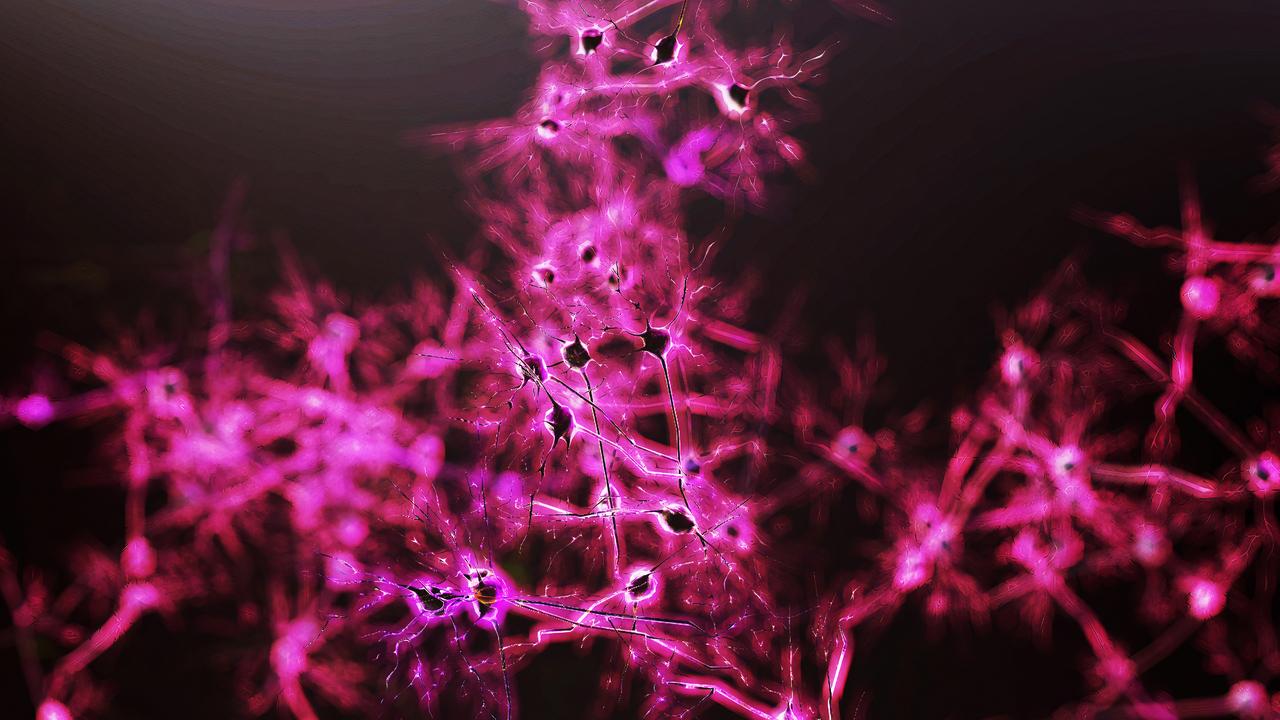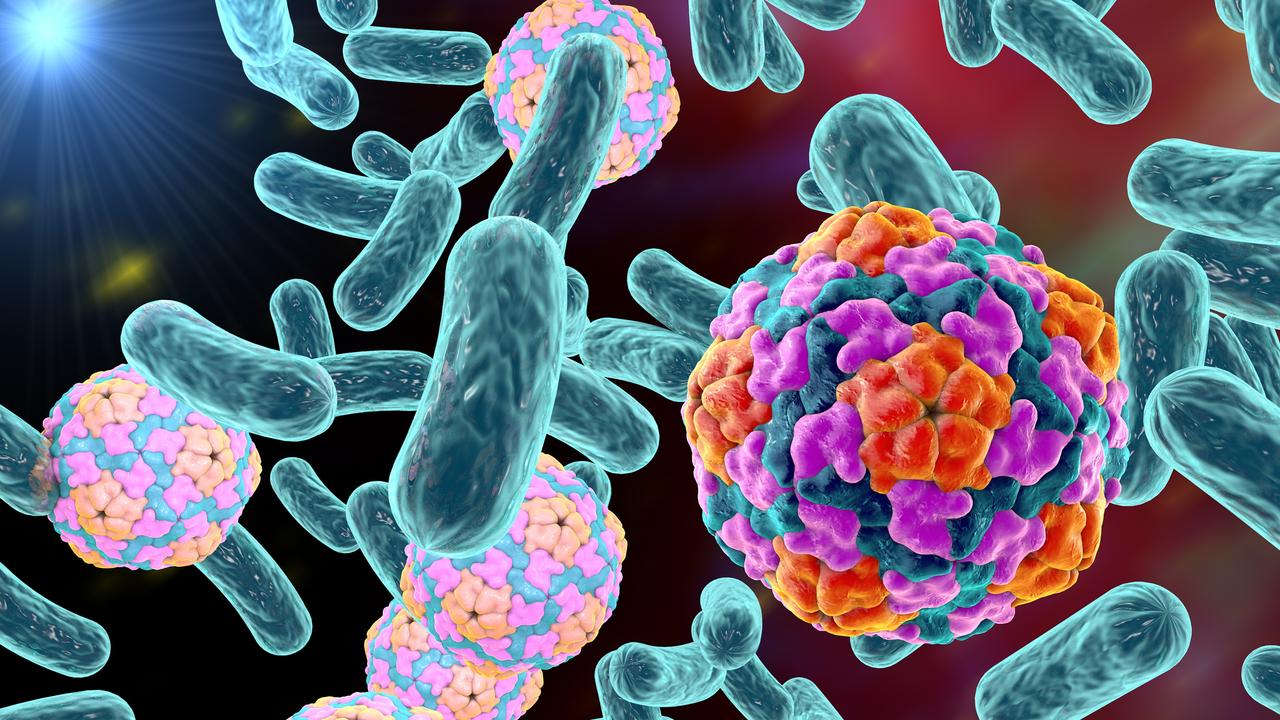Can’t stop eating? 5 reasons why you’re ravenous
FEEL like you want to eat pizza, chocolate and chips all the time? There’s a good reason you’re constantly ravenous. Here’s how to fix the problem.

Health
Don't miss out on the headlines from Health. Followed categories will be added to My News.
FEELING like a bottomless pit, even though you’ve just polished off an entire meal?
Here are five reasons behind your intense urge to snack.
1. You’re sleep-deprived
In today’s fast-paced world, a good night’s sleep has become somewhat of an indulgence. Multiple studies have shown that falling short on shut-eye causes changes in brain activity that make people hungrier and craving more satisfying, calorie-laden foods. Why? Too little sleep has been linked to higher levels of hunger-inducing ghrelin, a gut hormone which tells the brain we need to eat. To make matters worse, sleepiness also may dampen activity in other brain regions that usually serve as a brake on this type of craving. In other words, you’re not exactly noshing on carrots and hummus. Instead you’ll be tempted to look for a quick hit of energy — the kind that lives in vending machines or behind drive-through windows.
The Fix: Make it a habit to hit the sack early. Remove all distractions that keep you from sleeping, like tablets, smart phones, or TV.
2. You’re PMS-ing
The fact that women’s hormones can induce out-of-control PMS-fuelled binges is not a new idea, but science proves that this increased hunger is a biologically-driven process (and not the enemy). Put simply, during the peak of a women’s menstrual period, extra energy is in fact needed and food cravings are our bodies way of ensuring we obtain the nutrients our bodies require. One suspect is a dip in serotonin — a neurotransmitter associated with everything from happiness to appetite. A drop in serotonin levels (often a week leading up to a period) can trigger cravings for sugary or refined carbs because the body uses carbs to make serotonin.
The Fix: Prepare in advance to meet your bodies needs during this time and plan a menu that includes more sustainable sources of energy, such as wholegrain carbs to improve mood and keep blood sugar levels on an even keel.
3. You’re bored
Almost every experience that humans find pleasurable is linked to dopamine — a brain chemical that drives stimulation, reward and motivation. So on days when your life is one big yawn, the brain looks for ways to trigger the dopamine neurons for some thrill. The obvious one is eating. Unfortunately, though, eating out of boredom rarely coincides with an actual physiological need for food — chances you don’t just stop at one biscuit.
The Fix: Get your kicks elsewhere: connect with friends or exercise for a calorie-free pick-me-up instead.

4. Sabotaged by stress
This is a big one. And, of course, stress doesn’t just make your stomach bigger, it can make everything bigger, if you’re not careful. “Comfort” eating then begins as a response to a stressful event and can eventually become a habit that gets you through the daily grind. Unfortunately, this unconscious pattern sets up a cycle of eating (irrespective of hunger) that masks unpleasant feelings. Worse still, when stress strikes, the brain acts as though you’re in physical danger and triggers the cells to release a cocktail of hormones: one being adrenaline to tap into stored energy to “fight or flee”, the other being cortisol to replenish that energy — this makes you hungry, very hungry and you’re more likely to crave highly palatable foods high in refined carbs or fat (or both). However, the obvious problem is that most of us are facing a looming deadline rather than a deadly beast, so craving hot chips isn’t exactly helpful.
The Fix: Tame your stress with “non-food” stress-reduction techniques. Yoga, meditation and deep-breathing exercises are powerful tactics that keep tension in check and reduce the effects of cortisol.
5. It’s habit
It’s no secret that maintaining a nutritious diet requires an awareness of what, when and how much we eat. But here’s the catch: many of our eating habits are just that — habits. When it comes to “bad” eating habits, quite often it’s not what we eat, it’s how we eat that makes a difference. Whether it’s devouring slabs of cheese before dinner, eating way too quickly, or picking at the kids’ leftovers, we frequently fall into the same patterns that spark the brain into autopilot without any thought or intent required. However, the potential consequences of habitual eating are anything but nourishing. Unfortunately, these repeated pleasures could lead to health problems, ranging from poor digestion to weight gain, and an increase in the stress and imbalance in our lives.
The Fix: Next time you sit down to eat, ask yourself: ‘Am I really hungry?’ If you ate just a few hours ago and don’t have a rumbling stomach, you’re probably not really hungry. Give the craving a little time to pass.
Kathleen Alleaume is a nutritionist and exercise physiologist and Author of What’s Eating You? @therightbalance
Originally published as Can’t stop eating? 5 reasons why you’re ravenous







